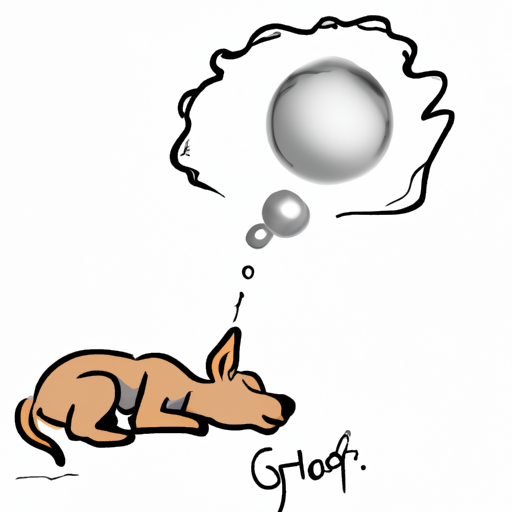Introduction
You might have noticed your adorable little furball breathing rapidly while snoozing and wondered, “Is this normal?” Your concern is understandable, as it’s your responsibility to ensure your puppy is healthy and comfortable. In this article, we’ll explore the reasons for fast breathing in puppies during sleep and provide some insights to help you better understand your canine companion.
Understanding Normal Puppy Breath
First, it’s important to understand what constitutes normal breathing for a puppy. Puppies breathe more rapidly than adult dogs due to their higher metabolic rate and need for more oxygen. Here’s a simple table to give you a rough idea:
| Age of Dog | Breaths per Minute |
|---|---|
| Puppies | 15-40 |
| Adult Dogs | 10-30 |
These numbers can vary greatly depending on the breed, size, and overall health of the dog. But don’t worry, a slightly higher or lower breath per minute count doesn’t necessarily indicate a problem.
Why Do Puppies Breathe Fast While Sleeping?
1. Rapid Eye Movement (REM) Sleep
During REM sleep, your puppy might appear to be twitching, moving their paws, or even barking. This is the stage of sleep where they dream, and their breathing can become irregular and fast. It’s completely normal and a sign that your puppy is getting a deep, restful sleep.
2. Overheating
Puppies can easily become overheated, leading to rapid breathing even during sleep. If you notice your puppy panting heavily along with fast breathing, consider if their environment might be too warm.
3. Excitement or Anxiety
Just like us, dogs can have their sleep affected by their emotional state. If your puppy has experienced something exciting or stressful before sleeping, they might breathe rapidly in their sleep.
When to Worry About Your Puppy’s Fast Breathing
While fast breathing in sleep is generally not a cause for concern, there are instances when you should consult a veterinarian:
- Continued Rapid Breathing: If the puppy’s rapid breathing doesn’t slow down after a few minutes of waking up.
- Difficulty Breathing: If your puppy appears to be struggling or gasping for air.
- Additional Symptoms: If rapid breathing is accompanied by coughing, loss of appetite, or lethargy.
These might be signs of underlying health issues, such as heart disease or respiratory infection.
Keeping Your Puppy Comfortable
To help your puppy have a restful sleep:
- Keep their sleeping area cool and well-ventilated.
- Provide a comfortable and supportive bed.
- Stick to a consistent bedtime routine.
- Limit exciting or stressful experiences before bedtime.
Frequently Asked Questions
1. Why does my puppy pant at night?
Panting can be a sign of overheating, anxiety, or discomfort. If your puppy frequently pants at night, it might be worth checking their sleeping environment or consulting a vet.
2. Is it normal for puppies to twitch in their sleep?
Yes, twitching during sleep is quite normal for puppies, especially during REM sleep when they dream.
3. How can I tell if my puppy is struggling to breathe?
Struggling to breathe can exhibit signs like gasping for air, wheezing, flared nostrils, and extended neck or elbows. If you notice these signs, seek veterinary help immediately.
4. What should I do if my puppy’s breathing worries me?
Always consult a vet if you’re worried about your puppy’s breathing. It’s better to err on the side of caution when it comes to your furry friend’s health.
In conclusion, while it’s common for puppies to breathe fast during sleep, keeping a close eye on other symptoms can ensure your peace of mind and their well-being. Remember, your vigilance is your puppy’s first line of defense against health issues.



